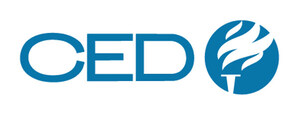News provided by
Committee for Economic Development of The Conference Board (CED)Jan 23, 2025, 09:53 ET
NEW YORK, Jan. 23, 2025 /PRNewswire/ -- The Committee for Economic Development (CED), the public policy center of The Conference Board, has issued a new Solutions Brief, America in Perspective: Policy Priorities for 2025. The report outlines the most pressing policy challenges before the nation this year and includes recommendations for strengthening US global leadership and fostering widespread economic opportunity.
The Solutions Brief draws from a letter from CED to the new President and Congressional leadership. The recommendations, developed in partnership with CED's business leader Trustees, address four critical issue areas: 1) US fiscal health; 2) challenges in domestic policy; 3) geopolitics; and 4) business leadership in public policy.
"Solving today's challenges will require determined leadership and deep partnership between the business and policy communities. The nation is facing proliferating national debt, long-term labor shortages, rapidly evolving AI, elevated geopolitical turmoil, and diminished trust in our democratic institutions to name a few. Together we must prioritize the critical initiatives that will strengthen US leadership and make capitalism sustainable for both current and future generations," said David K. Young, President of CED.
Policy priorities include:
1. US Fiscal Health and Healthcare Programs
- National debt exceeds $36 trillion; the cost of servicing it is greater than spending on defense. The national debt-to-GDP ratio, now at 100% and growing, is unsustainable.
- The Social Security and Medicare Trust Funds face depletion and need reform.
- Innovative solutions in healthcare include value-based care and alternative payment models, investments in the healthcare workforce, and expanding telehealth.
2. Challenges in Domestic Policy
- The Infrastructure Investment and Jobs Act (IIJA) and the CHIPS and Science Act are designed to boost the US industrial base, maintain leadership in basic science, and drive economic growth. These investments require collaboration between public and private stakeholders and better oversight. Energy transmission, grid modernization, and broadband are key priorities.
- Long-term labor shortages threaten growth and impact fiscal policy. Increase the participation rate through training and other incentives, promote investments in child care, and attract new workers by enacting comprehensive immigration reform, beginning by securing the border.
- New pathways in postsecondary education, including skills-based credentials, greater transparency and accountability, and business-led partnerships are necessary to meet the demands of tomorrow's workforce and society.
- Congress should develop a comprehensive national policy framework that ensures responsible AI development and use, working to promote safety, security, and innovation simultaneously. CED has developed a series of guardrails to inform this work and business' continued adoption of AI.
- Only greater reliance on and sensitivity to market mechanisms, with private sector innovation, will shift the energy mix and make progress towards net zero.
- Congress should speak more clearly in delegating authority to agencies, and agencies should follow the Administrative Procedure Act in letter and spirit. The DOGE initiative will provide opportunities for significant regulatory reform.
3. The Geopolitical Context
- In 2024, an already dangerous world became even more dangerous. This demands not only robust defenses but resolute and equally robust engagement with the world. We cannot shirk or shy away from these responsibilities of global leadership.
- Continued support for Ukraine against Russia's unprovoked aggression while supporting the pursuit of a sustainable peaceful resolution is a vital US national interest.
- Russia and China are increasingly working together, posing renewed dangers as global conflicts become increasingly intertwined, threatening both security and the global economy.
- In the Middle East, US global leadership remains indispensable to reducing conflict, preventing conflict from expanding, and working for peace in the region.
- In the Indo-Pacific, a robust posture includes closer economic and trade links as well as security ties with allies as the US competes with China for influence. A comprehensive plan for trade and investment with China will help manage our strategic competition and bolster supply chains in key industries for resilience, even as the US should continue its support for Taiwan.
- US exporters in all industries can compete well in global markets. Open trade benefits the US; high tariffs could spur inflation that threatens the US economy.
4. Business Leadership in Public Policy
- Business formation, capital formation, and innovation are long-term fundamentals of success. Transparent regulation and oversight, along with encouraging responsible innovation in financial services, will benefit US and global investors.
- A healthy democracy is vital for business and our country. Policymakers and private sector leaders should take lessons learned from the 2024 elections to continue to restore confidence.
About The Conference Board
The Conference Board is the member-driven think tank that delivers Trusted Insights for What's Ahead.™ Founded in 1916, we are a non-partisan, not-for-profit entity holding 501(c)(3) tax-exempt status in the United States. ConferenceBoard.org
The Committee for Economic Development (CED) is the public policy center of The Conference Board. The nonprofit, nonpartisan, business-led organization delivers well-researched analysis and reasoned solutions in the nation's interest. CED Trustees are chief executive officers and key executives of leading US companies who bring their unique experience to address today's pressing policy issues. Collectively, they represent 30+ industries and over 4 million employees. ConferenceBoard.org/us/Committee-Economic-Development
SOURCE Committee for Economic Development of The Conference Board (CED)

WANT YOUR COMPANY'S NEWS FEATURED ON PRNEWSWIRE.COM?
Newsrooms &
Influencers
Digital Media
Outlets
Journalists
Opted In





Share this article